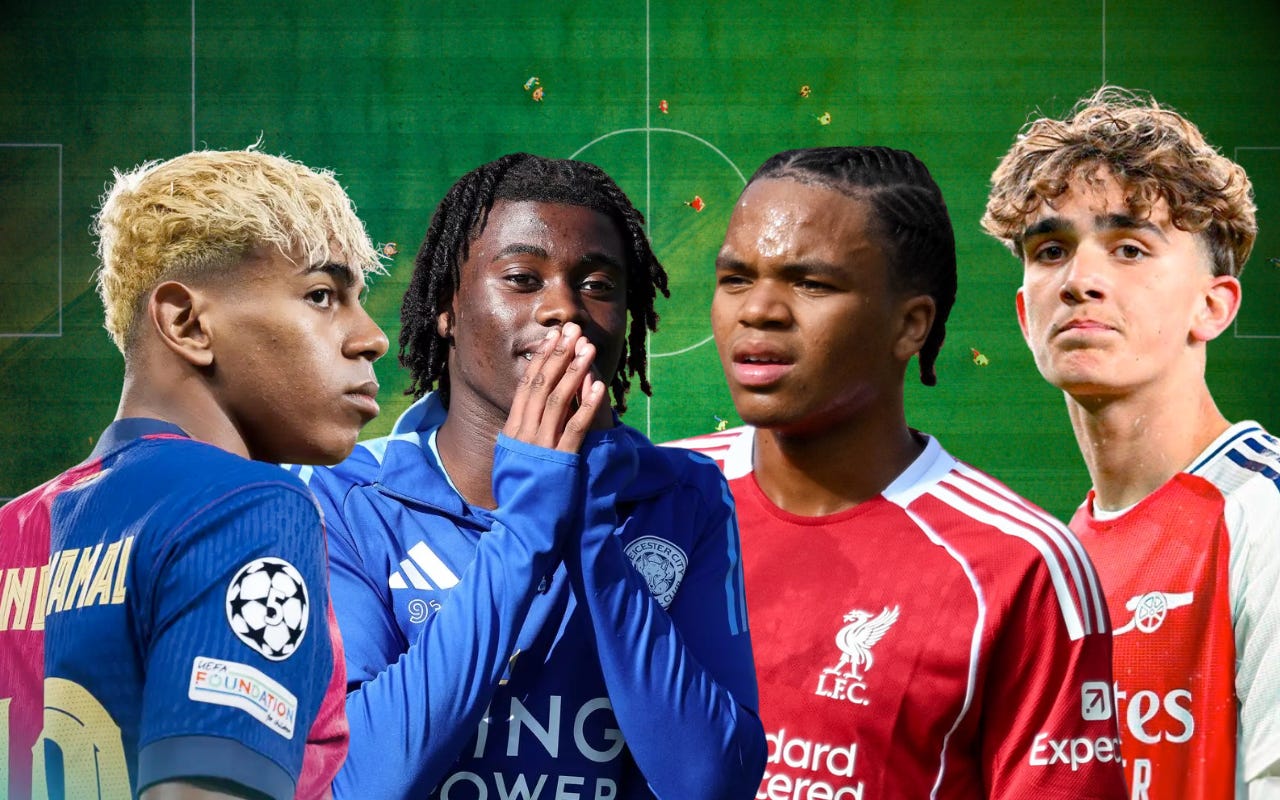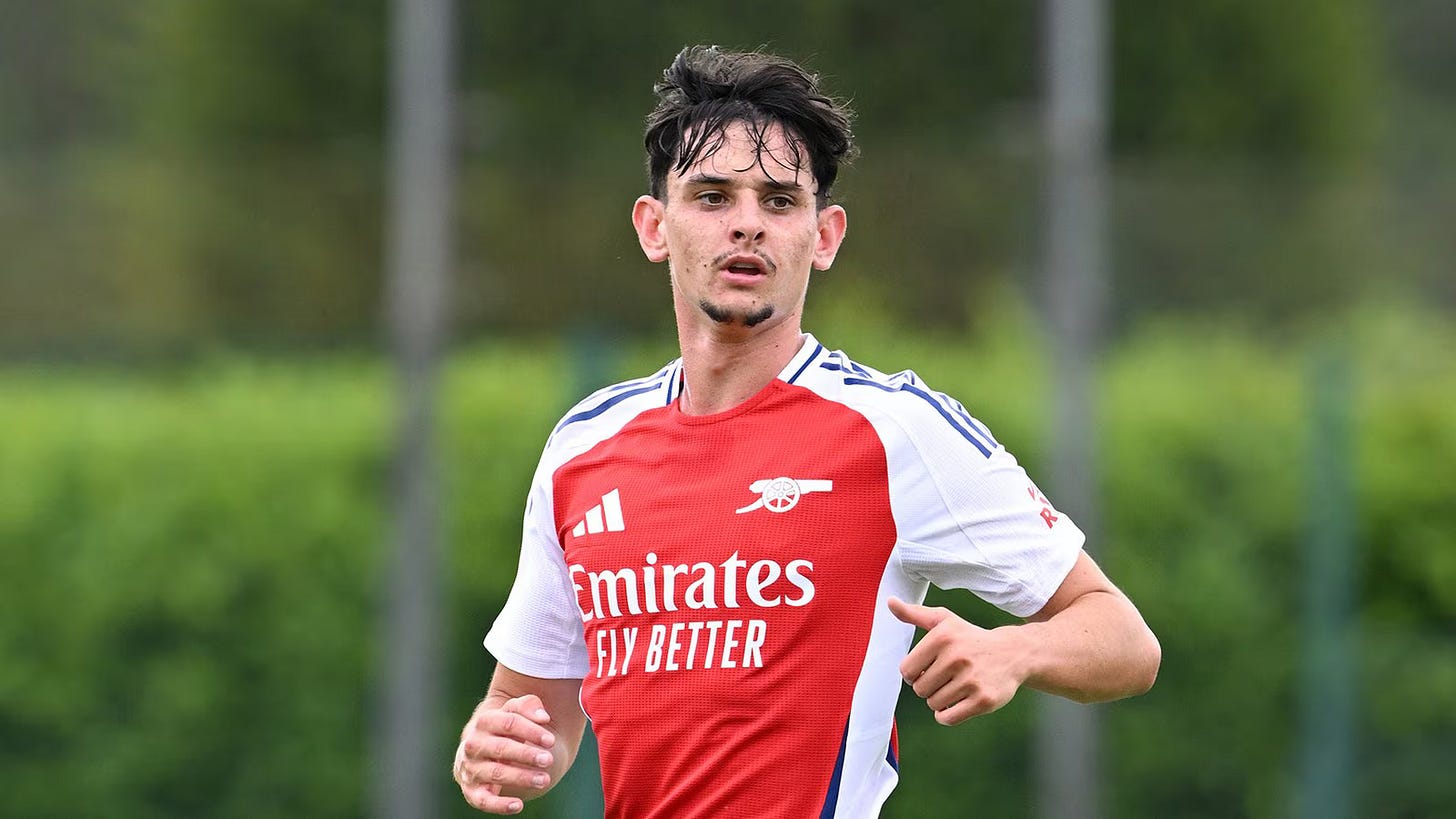Football’s Fast Track: Are the ‘Wonderkids’ Really Ready?
Dowman, Nwaneri, Ngumoha, Nyoni, Monga and Yamal: A Generation Pushing Football’s Limits
Kids in Kits, Dreams on Speed Dial
A few years ago, seeing a 15-year-old make a professional debut would have been viewed as sensational. Now it’s routine. In England alone, clubs like Arsenal, Liverpool and Leicester City are throwing school-age players into the heart of elite-level football. Names like Max Dowman, Ethan Nwaneri, Rio Ngumoha, Trey Nyoni and Jeremy Monga are no longer whispers in academy corridors but front-page material.
Then there is Lamine Yamal of Barcelona, already a La Liga and Euro 2024 winner before turning 18, who has become a touchstone for the others. While it may seem like we are entering a golden age of youthful genius, there is a fine line between recognising talent and recklessly fast-tracking it. Football’s hunger for the next big thing has rarely felt this ferocious.
Clubs now routinely field players who are not old enough to drive themselves to training. But what happens when the bright lights turn harsh? When the roar turns critical? These kids are the future, but they remain kids. That part matters.
Talent Worth the Noise
What separates this generation from others is not size or physical dominance. It is what they can do with a ball. Max Dowman, for instance, is not the biggest player on the pitch. But when he gets the ball, people lean forward. His movement, balance and fearless creativity scream of natural superiority, the kind that makes seasoned defenders look amateurish.
Ethan Nwaneri, Arsenal’s history-making midfielder, has already dealt with the spotlight of a Premier League debut at 15. Rio Ngumoha left Chelsea for Liverpool in a move that surprised many, not for ambition but for belief. He was seeking opportunity, not comfort. Trey Nyoni came the other way, from Leicester to Liverpool, and his composure in midfield has made him a regular name on Slot’s bench.
Jeremy Monga played seven Premier League matches for Leicester City in their relegation campaign. He was 15. That is no club selling shirts on a preseason tour, that is survival mode. When a team entrusts its fate to a teenager, it says something about that player, and maybe more about the state of the game.
In Spain, Lamine Yamal has already passed 100 senior appearances. He is 18. He plays with the serenity of someone twice his age. He creates chances others don’t see. He scores goals when games need winning. And yes, he also carries the burden of being compared to Messi.
This is not a weak wave of kids. It might be the strongest batch we have seen in decades. But strength is not just skill.
Fragile Paths, Brutal Systems
English football is not known for its patience. The Academy system has always been more brutal than romantic. For every player we now see starring at 15 or 16, there are thousands who were told “not quite” after a decade of dreaming. The statistics are cold: less than 1% of academy players make a Premier League appearance. And yet every child in the system is taught to believe he is the one. He has to.
Clubs have learned to speak the language of pathways. “There’s a route to the first team” is the modern seduction. But for the kids, it is rarely a straight road. It twists. It climbs. Sometimes it disappears altogether.
The presence of agents at younger ages and the impact of Brexit on international recruitment have made domestic talent the new battleground. Clubs offer more money, earlier chances, private school placements, and relocation deals. But in truth, what many are buying is hope. Potential is the only commodity in football with unlimited inflation.
Academies know this. Some, like Benfica, build infrastructure around emotional investment. There, getting a player into the first team is not just a business win; it is a personal victory. In England, that emotion often gets lost in the race for results. Even at the best-run clubs, the risk of burnout is real. These players are not just facing physical challenges but emotional turbulence.
When you debut at 15, where is left to go? What happens when you do not hit that next level quickly enough? What if the fans, once full of love, turn cold?
Mentality Before Market Value
The clubs that get this right treat mentality like muscle. Max Dowman’s technical excellence is obvious, but it is his resilience that stands out. He reacts to hard tackles not with retaliation but with answers. Score a goal, win a duel, make the defender chase shadows. That says more than any highlight reel.
Managers now talk about bone density when discussing youth selection. That’s the level of detail clubs use to calculate readiness. Arsenal are said to track Dowman’s physical data and found it matches first-team averages. But numbers alone don’t make a senior player.
What matters more is how a kid handles being roughed up by a veteran midfielder on a wet night in Wolverhampton. Can he laugh it off? Can he keep asking for the ball? That’s where character meets class.
Arne Slot recently praised Rio Ngumoha but made clear that decisions must be learning moments. Ngumoha created, dazzled and scored in pre-season, but also missed a simple pass. Slot noted it. Not to diminish him, but to balance the scales. That kind of guidance matters more than applause.
Similarly, when Jeremy Monga was trusted during Leicester’s collapse, the experience was likely brutal and brilliant at once. Survival football does not pause to accommodate nerves. It either crushes you or steels you.
Building Without Breaking
Calling someone a “wonderkid” makes us feel part of their story. It gives fans a sense of discovery, of shared potential. But it is also a weight. Charlie Patino, once hyped as the next Arsenal gem, is now rebuilding his career in Spain. By all accounts, he is still a fine player. Just not the saviour people decided he might be.
Progress in football is rarely linear. Injuries come. Coaches change. Confidence dips. Someone better turns up. Even the best can stall. That is why the term “wonderkid” should be used sparingly. Because sometimes we curse what we mean to bless.
Still, it feels different this time. Dowman’s drive, Yamal’s brilliance, Nwaneri’s maturity, Ngumoha’s fearlessness. These kids are not riding hype. They are building cases. But they need support, not slogans.
Respecting talent means more than giving early debuts. It means guiding them through failure, through silence, through the moments when no one is watching. That’s how footballers are built. That’s how they last.
Some of these boys will become household names. Some will fade. That is how it works. But right now, this group looks like something special. What they need now is not more headlines. They need care. They need clarity. And they need the freedom to grow, not just perform.
Football must remember: if you want magic at 25, do not burn it out at 15.



